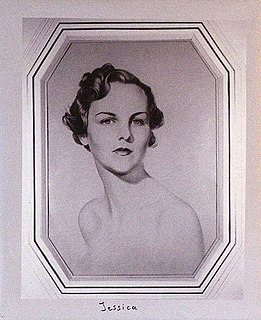A Quote by Horace Walpole
René of Anjou [(1409-80)] painted a picture of his mistress's corpse as he found it eaten by worms on having it [her tomb] openedon his return from a pilgrimage to Jerusalem. This [is] another instance of the strange mixture of religion and gallantry in those ages.
Related Quotes
King René of Anjou [(1409-80)]was a strange compound of amiable, great and trifling qualities. He was so excellent a sovereign as to acquire the surnom of the Good. He was brave in war, delighted in tournaments and wrote on them, instituted festivals and processions, partly religious and partly burlesque, was a fond husband, a romantic lover, a good painter for that age, and a true philosopher.
One posthumous measure of a person's life is how often you imagine his impossible return to deal with some event he never lived to encounter. You picture his reactions, his advice, his sage commentary and humorous asides. For instance, I think about Mark Twain's hypothetical take on current events several times a week.
Here's a strange fact: murder a man, and you feel responsible for his life - ''possessive'', even. You know more about him than his father and mother; they knew his fetus, but you know his corpse. Only you can complete the story of his life, only you know why his body has to be pushed into the fire before its time, and why his toes curl up and fight for another hour on earth.
Porter Rockwell was that most terrible instrument that can be handled by fanaticism; a powerful physical nature welded to a mind of very narrow perceptions, intense convictions, and changeless tenacity. In his build he was a gladiator; in his humor a Yankee lumberman; in his memory a Bourbon; in his vengeance an Indian. A strange mixture, only to be found on the American continent
The last image created in verse four of this hymn, ["Come, O Thou Glorious King"] that of the promised Messiah coming into his temple, seems appropriate for the day when Jesus was in the Jerusalem temple, teaching and establishing his authority. As with the Triumphal Entry, his actions then seem but a foretaste of even greater fulfillment when he comes again in glory. Just as the early Latter-day Saints were reassured by the promised return of the Savior, so we too can look forward with faith to his return as King.
Alas, poor Yorick! How surprised he would be to see how his counterpart of today is whisked off to a funeral parlor and is in short order sprayed, sliced, pierced, pickled, trussed, trimmed, creamed, waxed, painted, rouged and neatly dressed - transformed from a common corpse into a Beautiful Memory Picture.

































